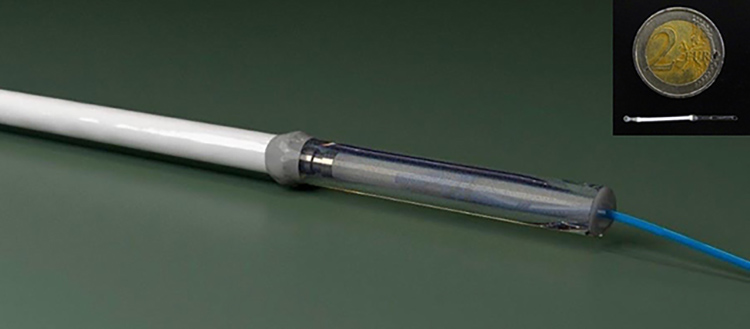Geneva study against SARS-CoV-2 gets underway

© Julien Gregorio/phovea/HUG
Geneva University Hospitals (HUG), the University of Geneva (UNIGE), the Infectious Disease Research Centre at Laval University in Quebec (Canada) and MaxiVAX – a Geneva-based company specialising in biotechnology – are working together to develop a SARS-CoV-2 vaccine. This joint research programme aims to create a vaccine combining an immunostimulator and a specific coronavirus target, namely the spike surface protein. This is administered by intradermal injection with the immunostimulator, whose role is to produce an adjuvant capable of stimulating the immune system. It is implanted under the skin via cell encapsulation, a technology that is already undergoing Phase II clinical tests led by HUG in collaboration with MaxiVAX in the area of cancer immunotherapy. The first pre-clinical tests for perfecting the vaccine will be carried out on mice in the coming weeks. If preliminary tests prove encouraging, a clinical trial could be set up in the near future.
Cell encapsulation: a technological breakthrough for better immunisation
Cell encapsulation technology can be used to wrap cells in a semi-permeable membrane before being injected into the patient to distribute the desired substance on a continuous basis. The function of the membrane is to protect the implanted cells from the host’s cell immunity without the need for any immunosuppressive treatment. The technology is perfectly suited to the chronic and / or localised administration of recombinant proteins such as immunostimulators. As a result, it clearly lends itself to the diffusion of the adjuvant called GM-CSF (see below) to achieve effective vaccination.
The technology behind cell encapsulation has another major advantage: it provides prolonged immunisation (7 days), giving the host's immune system time to stimulate an immunological reaction against the pathogen or disease, as opposed to a conventional immunisation that generally lasts for only a few hours after injection.
The use of encapsulated cells has theoretical advantages compared to current treatments. This study will expand our knowledge about the different immunisation processes and measure the anti-viral effectiveness.
An adjuvant that increases the immune response
The experiments carried out successfully as part of the research into cancer immunotherapy in clinical Phases I and II demonstrate the value of the GM-CSF adjuvant (granulocyte-macrophage colony-stimulating factor) for treating patients suffering from cancer with metastases refractory to conventional treatments. It can be used to recruit immune cells at the injection site, and stimulates their maturation and activation. Furthermore, in numerous experimental models, the local production of GM-CSF coupled with DNA vaccination induces protective immunity against bacteria, parasites and viruses (rabies, Ebola, HIV and influenza).
The overall goal of the study is to apply this knowledge to the development of a vaccine against SARS-CoV-2. The safety and clinical efficacy data that has already been obtained in cancer immunotherapy studies will accelerate the development of the vaccine, making it possible to move more quickly into the clinical testing phase.
Prioritising the immunisation of high-risk populations
If the pre-clinical and clinical trials proved conclusive, the process will represent a new avenue for devising a vaccine that could be primarily intended for vulnerable, elderly or comorbid patients.
28 May 2020